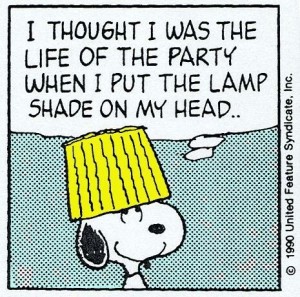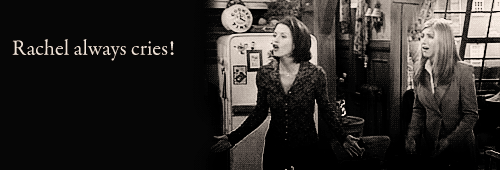Underwater Beauty
(What If? Exercise: Read the description here.)
Above ground, the sounds of the waves fill the air.
But underwater, you can only hear your own heartbeat.
I’d wanted to see one my whole life.
Now was my chance to find them.
Through the reef we slowly dove.
Until we finally saw them.
Huge, distant moving shapes.
We stared, spellbound.
Colossal beauties.
This piece is based on What If? Exercise 93: “Ten to One”. The exercise is to write a 55-word story in which the first sentence has ten words, the second has nine, etc., until the last sentence has only one word. The objective is to show that precision and thrift in writing can produce surprisingly powerful results. I hope you enjoy what I’ve written. Thanks for reading!
What If? Writing Prompts: Humor III
While we’re on the topic of comedy, why not help yourself to some new “What If?” Writing Prompts to go with the theme? To inspire your whimsical side, here’s a new batch of prompts in the humor genre! See what silly stories you can write from these ideas! Enjoy!
 What if… you were walking outside when it suddenly started raining chocolate?
What if… you were walking outside when it suddenly started raining chocolate?
What if… you were trying to get a song out of your head, but people kept humming it everywhere you went?
What if… every answer you gave had to rhyme with the question?
What if… you knew someone was going to prank you… and you had to figure out a way to make it backfire on them?
What if… every day were April Fools’ Day?
Good luck writing some more humorous tales!
If you have any “What If?” writing prompt suggestions (for any theme), please feel free to share them in the comments below. Ideas I like may be featured in future “What If?” posts, with full credit and a link to your blog (if you have one)! Also, if you’ve written a piece based on an idea you’ve found here, be sure to link back to the respective “What If?” post. I would love to see what you’ve done with the prompt! Thank you!
Word of the Week: Demagogue
Word: demagogue
Pronunciation: DE-mə-ɡahɡ
Part of Speech: noun
Definition: a political leader who seeks support by appealing to popular desires and prejudices rather than by using rational argument
Source: Oxford Dictionaries
First off, I have to thank Robert Kirkendall for recently reminding me of this word. I usually try to avoid getting political on my blog, but much like the case of the word “gerrymander“, current events have proven too fascinating to leave out of my Word of the Week segment. Anyone following the American presidential race may at one point or another have heard today’s vocabulary word being used in reference to a certain candidate who’s been dominating the polls. Dangerous as this is, of course, I suppose it makes sense; appealing to a majority of voters who want all their desires fulfilled and prejudices validated is a sure way for a “demagogue” to get elected!
A “demagogue” is a politician whose popularity comes from appealing to potential supporters’ prejudices and wishes as opposed to using rational arguments. The word arose in the mid 17th century and comes from the Greek noun dēmagōgós, meaning “popular leader”. This noun comprises two roots: the noun dêmos “people” and the adjective agōgós “leading”.
The word “demagogue” has a long history behind it; in Ancient Greece and Rome, it referred to “a leader or orator who espoused the cause of the common people”. It was originally a neutral word to define a leader of the common people, but has since morphed into a pejorative term for politicians considered to be harmful, manipulative, and/or overly prejudiced. If you write political fiction with characters who will say or do anything to gain supporters, you definitely have at least one “demagogue” lurking in your stories!
What are your thoughts on this word? Any suggestions for future “Word of the Week” featured words?
Surprising Science
Science never ceases to surprise me.
I’d have sworn my project was like any other of its kind: collect samples in the field, run DNA tests, analyze and discuss the data, write the paper. Simple as that. Ironically, evolutionary studies don’t usually qualify as groundbreaking, just substantiating at best. We’re all trying to support the same idea: that life is constantly changing.
I studied reef fish biogeography and evolution for half my years at college, so by the time I got into grad school, I knew their patterns pretty well. I didn’t expect anything different when I took on a project about yet another reef fish species. Evaluate its genetic connectivity along the coast, that’s all there was to it. My project was a simple matter of collecting specimens from different locations and comparing their DNA to get a picture of how it was evolving in a given biogeographic province.
Nothing out of the ordinary came up during the sampling and amplification periods. The surprise came when I analyzed the data.
I remember that moment distinctly. Exhausted from weeks of amplifying DNA, reading papers, and writing and rewriting the first parts of my thesis, I was finally sitting down at my computer to compare the sequences. I took a sip of coffee just as the program finally finished running the data… and almost spit it out at the sight of the phylogenetic tree that appeared on the screen. Where I had expected to see a single branch containing all my sequences, there were two separate clades dividing the samples collected from the northern and southern coastal regions. Two geographically close populations that should have been almost identical somehow had a 10% genetic divergence between them. Was that even possible?
An excitement like I hadn’t felt in years overcame me, but I still had to be sure. I ran the data again using three different parameters. All three trees produced the same result: North here, South there. I couldn’t believe my eyes. Yet there it was on my screen, plain as the nose on my face. The results were clear beyond a shadow of a doubt: I was dealing with…
“A new species?!”
I jumped up from my chair and ran next door to my professor’s office. Within the minute, I was showing him the trees on my computer and watching his expression change from puzzled to amazed. I knew exactly why we should be so excited by this result; it meant there were other evolutionary processes at play that we hadn’t expected. In anticipation of the stimulating discussions ahead, I knew the grin on my face wouldn’t disappear for at least a week. My project had just gotten way more interesting.
Science never ceases to surprise me. And I hope it never will.
My Top Five Humor Tropes
What’s life without whimsy? Laughter truly is the best medicine, which is why many writers like to include a little comedy even in dramatic works. Humor is one of the most appealing genres of fiction, but it’s also one of the most challenging to write. That’s where humor tropes come in! When in need of a little comedy, a good humor trope may be just the thing to lighten the mood and keep your stories from becoming too grim.
So in the spirit of April Fools’ month, here are five of my favorite humor tropes. I hope you’ll find these as entertaining as I do! Enjoy!
1) Lampshade Hanging
 Lampshade Hanging is easily my favorite humor trope. I wrote a whole post about it in my first few months of blogging! I just love when fictional characters draw attention to the ridiculousness of a situation they’re in, almost as if they’re purposely leaning on the fourth wall to let the audience know they “see it too”. The practice of “hanging lampshades” is a handy technique writers use to demonstrate their own awareness of intentional details in their stories that would otherwise be dismissed by the audience as mistakes or simply bad writing – a sort of “self-deprecation” device, if you will. Note that the best way to use a lampshade in comedy is as a standalone comment: bring it up once, then move on and never mention it again. A classic way to entertain your audience while keeping the critics at bay, Lampshade Hanging is a great go-to trope for adding a touch of clever humor to your stories!
Lampshade Hanging is easily my favorite humor trope. I wrote a whole post about it in my first few months of blogging! I just love when fictional characters draw attention to the ridiculousness of a situation they’re in, almost as if they’re purposely leaning on the fourth wall to let the audience know they “see it too”. The practice of “hanging lampshades” is a handy technique writers use to demonstrate their own awareness of intentional details in their stories that would otherwise be dismissed by the audience as mistakes or simply bad writing – a sort of “self-deprecation” device, if you will. Note that the best way to use a lampshade in comedy is as a standalone comment: bring it up once, then move on and never mention it again. A classic way to entertain your audience while keeping the critics at bay, Lampshade Hanging is a great go-to trope for adding a touch of clever humor to your stories!
2) Brick Joke
It’s gonna be legen… wait for it… [falls asleep]
You know when a joke is set up at one point in a story only for the punchline to come later, when you’ve almost forgotten about it? Well, that’s a special kind of humor device called a Brick Joke. This is the comedic version of the Chekhov’s Gun, when the conclusion to a funny scene is delivered separately from its beginning after several unrelated events have happened in between. This trope is named after an old joke consisting of two parts, the first ending with an underwhelming punchline about a brick and the second ending with a twist that recalls the same brick. The humor of a Brick Joke comes from subverting the audience’s expectations: what at first appear to be separate situations turn out to be two parts of the same joke. To properly execute a Brick Joke, scatter a few jokes between the set-up and the punchline so as to either dissuade the audience’s suspicion that the first part was building up to a joke or trick them into thinking the first part was the joke. With the right timing, this trope can score major laughs from your readers! They won’t know what hit ’em!
[5 minutes later; waking up when the door slams] -dary!
– Barney Stinson, How I Met Your Mother (Season 2, Episode 11 – How Lily Stole Christmas)
3) Running Gag

Ooooh! (Puss in Boots, 2011)
A sister trope of the Brick Joke, the Running Gag is another popular comedic device, especially in TV series. It’s also one of the riskiest; when done poorly, it quickly becomes annoying, but when done well, it can rake in a lot of laughs. A Running Gag is basically a joke that’s repeated over the course of a story or series (a minimum of three times), sort of like a recurring punchline to the same Brick Joke. It usually involves the same character(s) each time it comes up, though this needn’t be the case when the humor of the gag is entirely in the action itself. The key to a good Running Gag is timing: space the punchline recurrences far enough apart to keep the joke from wearing out too quickly, but add enough recurrences to draw as much laughter from the audience as possible. This may take a lot of practice to get right, especially since humor is so subjective, but once you get the hang of it, the Running Gag can make an excellent addition to your arsenal of comedy tropes!
4) I Resemble That Remark
Amy: You were being totally obstinate!
Knuckles: I don’t know what “obstinate” means, but I refuse to learn.
– Sonic Boom (Season 1, Episode 22 – The Curse of Buddy Buddy Temple)
Sometimes in comedy, one character will call another out on a flaw, only for this second character to object… in a way that demonstrates the exact flaw they’re denying. I Resemble That Remark is one example of the many humorous uses of irony, in this case comically subverting characters’ perceptions of themselves. It’s one of those comedic devices that draws its humor from an element of truth, as it plays on the all-too-common scenario where a trait that a person will swear is nothing like them will in fact turn out to be one of their defining characteristics. Think of it as an exercise in learning to laugh at yourself; if you find yourself identifying with fictional characters who can’t see their own shortcomings, maybe it’s time to reevaluate that idealized self-image!

Monica: Rachel always cries!
Rachel: [sobbing] That’s not true!
– Friends (Season 4, Episode 4 – The One With The Ballroom Dancing)
(Source: Tumblr)
5) Hypocritical Humor
Mike: I’m gonna go to the bathroom.
Phoebe: Okay, well you put down the toilet seat.
Mike: Yes, dear. [leaves]
Monica: Is that a bit you guys do?
Phoebe: Uh-huh, we’re playing you two.
Monica: We don’t do that! [to Chandler] Tell her we don’t do that!
Chandler: Yes, dear.
– Friends (Season 9, Episode 16 – The One With The Boob Job)
The previous item on this list is a subtrope of a device known as Hypocritical Humor. This trope comes in a variety of flavors: saying one thing and doing the exact opposite, exhibiting a behavioral flaw immediately after denying said behavior, criticizing or making fun of others for faults of which the accuser him- or herself is guilty, or ignoring several warnings of an impending event only to get upset when said event happens. One particularly hilarious form of this trope is when the irony comes from the universe aligning itself exactly right to contradict a statement the exact moment after someone says it, which can either be a way of tempting fate or invoking karmic justice, depending on the nature of the statement. Note that Hypocritical Humor in fiction constitutes jokes that are intentionally added to a story to be played for laughs; unintentional hypocrisy is more likely attributable to bad writing and, in cases where it still evokes some laughter, may fall under a phenomenon known as Narm (that is, what is meant to be serious but is accidentally funny instead). Be careful how you deploy that hypocrisy in your fiction!
What are your favorite humor tropes? Which humor tropes have you used in your stories?


Recent Comments